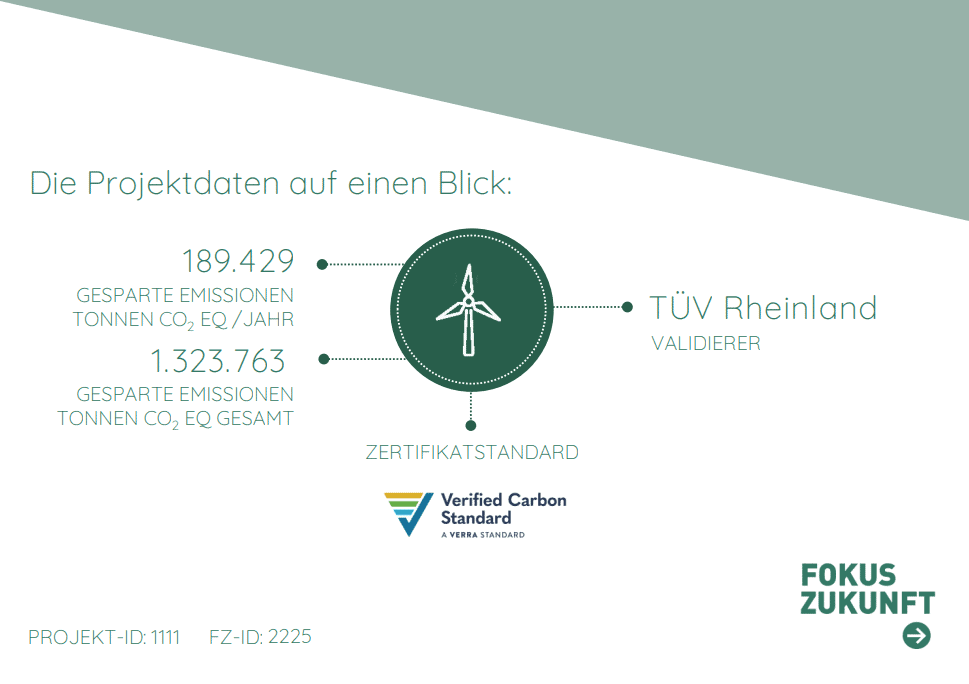
Climate neutrality at OceanEvent
Founder and CEO Christian Muehleck has already been dealing with climate neutrality at OceanEvent since 2018. An appropriate climate strategy is important to the former yacht captain in order to reduce the CO2 emissions of the maritime events carried out as far as possible and to offset them where they are unavoidable. From the very beginning, the charter broker and specialist for events on cruise ships worked together with Fokus Zukunft GmbH & CoKG. on this. On October 27, 2022, the latest emissions balance sheet was drawn up, providing information on how the company’s ecological footprint has changed and where there is potential for savings.
Positive climate balance
It is gratifying to see how environmental awareness pays off: Compared to the last survey in 2019*, 9 metric tons of CO2 EQ were saved in OceanEvent’s operating business in 2022. There is one main reason for this: “Just three years ago, it was both our claim and the expectation from customers that we would present our maritime event concepts and ships in person,” Christian Mühleck recounts. Today, more than 90 percent of customer contacts take place virtually. As in many other industries, video conferencing has replaced much of the travel. There has also been a change in thinking about travel: The team used to cover most of its distances by company car or took the plane as a matter of course. “Today, we travel by train.”
*The years 2020 and 2021 were not accounted for because travel was restricted due to the pandemic and no cruise charters were conducted.
Sustainability goals of the cruise industry
Saving nine tons of CO2 – with an increased number of employees – is something to be proud of. Nevertheless, there are of course emissions in this business that cannot be eliminated so easily. Not yet. By 2050, however, the cruise industry has committed itself to becoming carbon-free – and thus CO2-neutral. The necessary innovations on the way there have been driven forward for years with billions invested by the shipping companies. With great success. Christian Mühleck recalls: “When I was sailing on ocean-going yachts, oil consumption was around 500 liters per hour. Mind you, this was on ships that were allowed to take a maximum of 12 people on board. Recently, I spoke with a captain about the consumption of his cruise ship, which holds 100 passengers. It’s 90 liters per hour.” Indeed, these are encouraging developments. In addition, the cruise industry is massively retooling – moving away from polluting heavy fuel oil to LNG or hybrid propulsion. LNG releases virtually no sulfur emissions and reduces particulate emissions by 95 percent, nitrogen oxides by 85 percent and greenhouse gas emissions by up to 20 percent. Another important step toward decarbonizing shipping is shore power. “By 2035, all ships of the global cruise association CLIA are to be equipped to use shore-side electricity (SSE),” Mühleck, a nautical expert, knows. Shutting down engines while in port avoids huge carbon emissions. Where infrastructure is not growing fast enough and shore power is not available, alternative low-carbon technologies are then used.
OceanEvent favors environmentally friendly ships
Christian Muehleck welcomes the market’s ambitious efforts. By selecting the ships he offers, he indirectly influences these developments. 24 of the 30 ships OceanEvent will charter to clients in 2022 and 2023 for maritime events, incentives, conferences and private celebrations are among the most environmentally friendly cruise ships in the world. This latest generation features the aforementioned propulsion systems and alternative technologies. They are equipped with advanced wastewater treatment systems and biological treatment plants, use heat recovery or on-board fresh water generation. They pursue waste-avoidance and zero-plastic strategies on board, as well as sustainable destination management that minimizes their footprint in the regions they travel.
Sustainable cruise events
However, OceanEvent also has a direct influence on greenhouse gas emissions during its charters, with the experienced navigator creating the cruise plans himself. “This gives us full control over the speed at which our guests travel,” he explains, adding, “It makes a huge difference in CO2 consumption whether a ship plows through the ocean at 19 knots or cruises at 9 knots with only one engine.” For participants in OceanEvent’s maritime events, leisurely cruising is a special highlight; for the environment, it’s a real win. And according to expert Mühleck, Europe in particular offers a coastal region where the most beautiful spots such as ports, islands, gala locations and beaches are not far apart. This means that cruise events can be designed to be ecologically sustainable.
Climate neutrality at OceanEvent
Of course, our charter cruises are not free of emissions either. Here OceanEvent resorts to the climate strategy recommended by Fokus Zukunft. “For the unavoidable emissions of our business, we obtain climate protection certificates,” explains Christian Mühleck. The broker has chosen 2022 certificates that support a wind farm project in Patagonia, Argentina. It will neutralize 189,429 tons of CO2 EQ annually, contributing to three important UN goals for sustainable business. Details of the funded wind farm project can be viewed here.

OceanEvent was once again awarded the “Climate Neutral Company“ seal for its climate strategy in 2022 and promises further emission savings in the coming years, as well as influencing sustainability efforts within the cruise industry.
